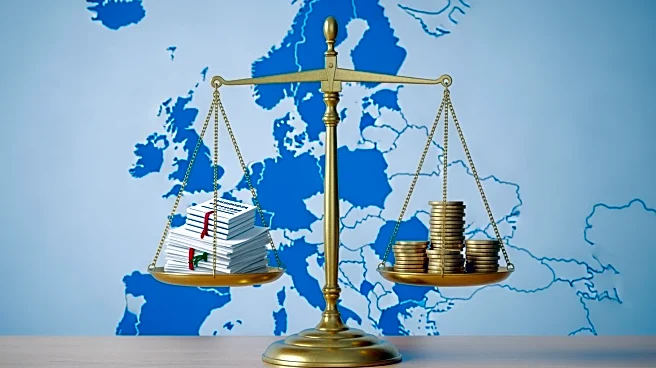What's Happening?
The European Parliament is a central institution in the EU's legislative process, representing the interests of EU citizens. It operates under the principle of representative democracy, with its legal status defined by the EU Treaty and the Treaty on the Functioning
of the European Union. The Parliament's powers have expanded over time, particularly with the Treaty of Lisbon, which enhanced its legislative and budgetary roles. The Parliament shares legislative authority with the Council, requiring its approval for EU laws and budgetary decisions. It also plays a role in the composition of the European Commission, approving its members.
Why It's Important?
The European Parliament's expanded powers reflect the EU's commitment to democratic governance and accountability. By involving directly elected representatives in the legislative process, the EU ensures that its policies are aligned with the interests of its citizens. The Parliament's role in approving the EU budget and overseeing the Commission enhances transparency and accountability, crucial for maintaining public trust in EU institutions. Its involvement in international agreements and trade negotiations underscores its influence in shaping the EU's external relations.
What's Next?
The European Parliament will continue to be a key player in upcoming legislative and budgetary decisions, including negotiations on the EU's long-term financial framework. As the EU navigates challenges such as economic recovery, climate change, and geopolitical tensions, the Parliament's input will be vital in shaping effective policies. The Parliament's role in approving the European Commission's composition will also be significant, influencing the direction of EU policy.
Beyond the Headlines
The European Parliament's role extends beyond legislative functions, serving as a platform for promoting democratic values and human rights. Its engagement with citizens through petitions and initiatives fosters a sense of participation and ownership in the European project. The Parliament's cooperation with national parliaments strengthens the connection between EU and member state governance, contributing to a more integrated and cohesive Union.















